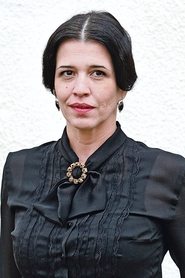
Ask Your Own Question
What is the plot?
In "Episode 7" of "Flat Hill," the episode opens with a tense atmosphere in the small town as the aftermath of the previous episode's events weighs heavily on the characters. The camera pans over the town, capturing the somber expressions of the residents as they go about their daily routines, hinting at the underlying tensions that have been building.
The scene shifts to the main characters, Sarah and Tom, who are in a heated discussion at the local diner. Sarah is visibly upset, her hands trembling as she recounts the confrontation she had with her estranged father the night before. Tom, trying to support her, urges her to confront her father again, believing that unresolved issues are affecting her emotionally. Sarah, however, is torn; she wants to move on but feels a deep sense of betrayal and hurt.
Meanwhile, at the town hall, a community meeting is taking place regarding the recent disturbances in Flat Hill. The mayor, a charismatic but manipulative figure, addresses the crowd, trying to downplay the concerns of the residents. He emphasizes the need for unity and cooperation, but his words are met with skepticism. Among the crowd, a group of locals, including Sarah's mother, express their frustrations, leading to a heated exchange. The mayor's facade begins to crack as he struggles to maintain control over the meeting.
Back at the diner, Sarah receives a text from her father, asking to meet. Torn between anger and a desire for closure, she confides in Tom, who encourages her to go. As she prepares to leave, the tension in her body is palpable; she knows this meeting could change everything. Tom offers to accompany her, but Sarah insists on going alone, wanting to face her father on her own terms.
The scene transitions to the meeting place, an old, rundown park where Sarah's father used to take her as a child. The atmosphere is heavy with nostalgia and unresolved emotions. When Sarah arrives, her father is already there, looking older and more worn than she remembers. Their initial exchange is awkward, filled with unspoken words and lingering resentment. Sarah's father tries to explain his past decisions, but Sarah interrupts, demanding answers about why he abandoned her and her mother.
As the conversation escalates, Sarah's emotions boil over. She confronts her father about the pain he caused, her voice shaking with anger and hurt. Her father, defensive at first, begins to show vulnerability, revealing his own struggles and regrets. This moment of honesty creates a crack in their strained relationship, but Sarah is still hesitant to forgive him. The scene is charged with raw emotion, capturing the complexity of familial bonds.
Meanwhile, back in town, Tom is at the diner, discussing the mayor's recent actions with a few concerned residents. They express their fears about the mayor's growing power and the potential consequences for the community. Tom, feeling a sense of responsibility, decides to take action. He proposes organizing a town meeting to address the mayor's behavior and rally the community to stand up for their rights.
The episode shifts back to Sarah and her father, where the conversation takes a surprising turn. Just as Sarah begins to soften, her father reveals a shocking secret about her mother that changes everything. This revelation leaves Sarah reeling, and she struggles to process the information. The emotional weight of the moment is palpable as she grapples with feelings of betrayal and confusion.
As the episode nears its climax, Sarah storms away from the meeting, feeling overwhelmed. She finds solace in a quiet spot by the river, where she reflects on her father's words and the implications for her relationship with her mother. The internal conflict is evident on her face as she battles between anger and a desire for understanding.
The final scenes of the episode bring the various plot threads together. Tom successfully organizes the town meeting, and the community gathers to discuss their concerns about the mayor. The atmosphere is charged with determination as residents share their stories and frustrations. Sarah, still grappling with her emotions, arrives just in time to hear Tom speak passionately about the need for change. Inspired by his words, she steps forward to share her own story, revealing the personal impact of the mayor's actions on her family.
The episode concludes with a sense of unity among the townspeople, but also leaves lingering questions about Sarah's relationship with her father and the future of Flat Hill. The camera pulls back, capturing the group standing together, a mix of hope and uncertainty in their expressions as they prepare to confront the challenges ahead.
What is the ending?
In the ending of "Flat Hill," Season 1, Episode 7, tensions reach a boiling point as the characters confront their unresolved issues. The episode culminates in a dramatic confrontation that forces each character to face their fears and desires. By the end, relationships are irrevocably changed, and the characters are left to grapple with the consequences of their actions.
As the episode unfolds, the scene opens in the dimly lit community center where the characters have gathered for a town meeting. The atmosphere is thick with anticipation and anxiety. The camera pans across the faces of the townsfolk, revealing a mix of determination and fear. The main characters--Sarah, Tom, and Lisa--are seated at the front, each grappling with their own internal struggles.
Sarah, visibly shaken, stands to address the crowd. Her voice trembles as she speaks about the recent events that have divided the community. She expresses her desire for unity, but her words are met with skepticism. The camera captures the tension in the room, focusing on the furrowed brows and crossed arms of the audience. Sarah's internal conflict is palpable; she wants to be a leader but fears the backlash from her peers.
Next, Tom, who has been silent until now, rises to speak. His demeanor is defensive, and he struggles to articulate his thoughts. He reveals his frustrations about the town's direction and the decisions made by the council. As he speaks, the camera zooms in on his clenched fists, showcasing his anger and desperation. The crowd reacts with mixed emotions--some nod in agreement, while others shake their heads in disapproval. Tom's motivations stem from a deep-seated need for validation and respect, which he feels has been denied to him.
Lisa, sitting between them, feels the weight of the moment. She stands up, her voice steady but filled with emotion. She shares her personal story, recounting how the recent conflicts have affected her family. Her vulnerability resonates with the audience, and the camera captures the shift in their expressions--from hostility to empathy. Lisa's internal struggle is evident; she seeks to bridge the gap between Tom and Sarah, hoping to foster understanding.
As the meeting escalates, a heated argument breaks out between Tom and Sarah. Their voices rise, echoing off the walls, as they confront each other's past mistakes. The tension reaches a peak when Tom accuses Sarah of being out of touch with the community's needs. Sarah, hurt and defensive, counters by highlighting Tom's inability to take responsibility for his actions. The confrontation serves as a catalyst for change, forcing both characters to confront their flaws.
In the climax of the episode, a sudden power outage plunges the room into darkness. Panic ensues, and the characters are momentarily disoriented. In the chaos, Sarah and Tom find themselves trapped in a corner, forced to confront each other without the distractions of the outside world. The darkness symbolizes their unresolved issues, and as they navigate through the confusion, they begin to understand each other's perspectives.
When the lights flicker back on, the atmosphere has shifted. The characters, now visibly exhausted, sit in silence. The camera captures their weary expressions, reflecting the emotional toll of the confrontation. Sarah and Tom exchange a tentative glance, signaling a fragile truce. Lisa, witnessing this moment, feels a sense of hope for the future.
The episode concludes with the characters leaving the community center, each changed by the experience. Sarah walks out with a newfound sense of purpose, determined to lead the town towards healing. Tom, though still grappling with his anger, acknowledges the need for collaboration. Lisa, feeling a sense of relief, hopes that the town can move forward together.
In the final scene, the camera pans out, showing the characters walking in different directions, symbolizing their individual journeys. The fate of each character is left open-ended, allowing viewers to ponder the future of Flat Hill and its inhabitants. The episode closes with a lingering sense of uncertainty, highlighting the complexities of human relationships and the challenges of community dynamics.
Is there a post-credit scene?
In "Episode 7" of Flat Hill, there is indeed a post-credit scene that adds an intriguing layer to the episode's narrative.
As the credits roll, the screen fades back in to reveal a dimly lit room filled with old photographs and newspaper clippings pinned to a corkboard. The camera slowly pans across the board, focusing on a particular photo of a young woman who bears a striking resemblance to one of the main characters, Sarah. The image is dated from several decades ago, hinting at a deeper connection to the town's history.
Suddenly, the door creaks open, and a shadowy figure enters the room. The figure is cloaked in darkness, but the tension in the air is palpable. They approach the corkboard, their fingers tracing the edges of the photographs, lingering on the one of Sarah. A low, ominous voice mutters, "It's time to uncover the truth."
The scene cuts to black, leaving viewers with a sense of foreboding and curiosity about the implications of this discovery. This moment serves as a tantalizing tease for future episodes, suggesting that the past is intricately linked to the present, and that secrets long buried in Flat Hill are about to resurface.
What significant event occurs between the characters Sarah and Tom in Episode 7?
In Episode 7, Sarah confronts Tom about his secretive behavior, leading to a heated argument that reveals deeper insecurities in their relationship. Sarah feels betrayed by Tom's lack of transparency, while Tom struggles with his fear of vulnerability.
How does the town of Flat Hill react to the news of the upcoming festival in Episode 7?
The announcement of the festival brings a mix of excitement and tension among the townspeople. Some, like the mayor, see it as an opportunity for community bonding, while others, particularly the older residents, express skepticism about the changes it might bring to their traditional way of life.
What role does the character of Lucy play in Episode 7?
Lucy takes on a pivotal role in Episode 7 as she organizes a community meeting to address the concerns surrounding the festival. Her determination to unite the town showcases her leadership qualities, but she also grapples with her own doubts about whether she can truly bring everyone together.
What internal conflict does Mark face in Episode 7 regarding his family?
Mark experiences a profound internal conflict in Episode 7 as he struggles with the pressure to uphold his family's legacy while also wanting to forge his own path. This tension culminates in a poignant scene where he reflects on his father's expectations and his desire for independence.
How does the relationship between Jenna and her mother evolve in Episode 7?
In Episode 7, Jenna's relationship with her mother reaches a turning point as they have a heartfelt conversation about Jenna's aspirations. Jenna's mother, initially dismissive of her dreams, begins to understand her daughter's passion, leading to a moment of reconciliation and newfound support.
Is this family friendly?
"Flat Hill," season 1, episode 7, titled "Episode 7," contains several elements that may be considered objectionable or upsetting for children or sensitive viewers.
-
Emotional Conflict: The episode features intense emotional scenes where characters confront personal struggles and conflicts, which may be distressing for younger viewers.
-
Family Tension: There are moments of family discord that could be uncomfortable, showcasing arguments and misunderstandings that might resonate negatively with children.
-
Themes of Loss: The episode touches on themes of loss and grief, which could be heavy for sensitive audiences, as characters deal with the emotional fallout of their experiences.
-
Mature Discussions: Some conversations may include mature themes or language that could be inappropriate for younger viewers.
-
Visual Tension: There are scenes that may include visual tension or suspense that could be frightening or unsettling for children.
These aspects contribute to a narrative that, while rich in character development and emotional depth, may not be suitable for all audiences, particularly younger children or those sensitive to such themes.






















































